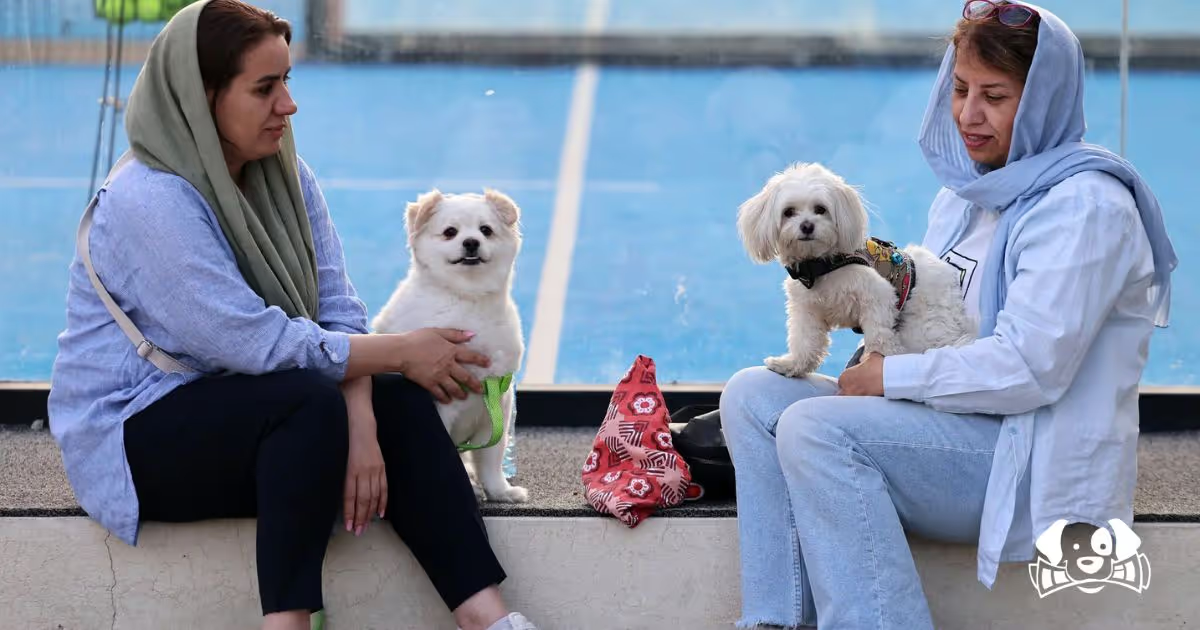Iran’s New Crackdown: Walking Your Dog Now a Crime
Iran has quietly escalated its ban on dog walking, expanding enforcement beyond Tehran, fueled by religious doctrine and state-driven “morality” campaigns. With dozens of cities now on alert, pet owners face fines, confiscation—and even vehicles being impounded. The popular trend of canine companionship is colliding head‑on with Persia’s traditionalist regime.

Expansion of a Quiet Crackdown
What began in Tehran in 2019 as a low-profile ban on walking dogs has evolved into a full-blown nationwide enforcement campaign. At least 20 cities across Iran—including Isfahan, Mashhad, Tabriz, Kerman, and Hamadan—are now stepping up actions against pet owners.
Local prosecutors argue that dog walking poses a risk to public health and social order. Mohammad Hossein Doroudi, the prosecutor of Mashhad, declared, “Dog walking is a clear crime,” and announced that violators would first receive warnings, then face fines or have their pets confiscated if they continue to disobey.
In some cities, the crackdown goes further: authorities have ordered the seizure of vehicles transporting dogs and the closure of unauthorized veterinary clinics and pet-related businesses.
Faith, Purity, and Western Influence
There is no formal law in Iran that explicitly bans dogs as pets. However, powerful religious rulings guide enforcement. According to Islamic tradition, dogs are considered “najes” (ritually impure). A fatwa issued by Iran’s supreme leader Ayatollah Ali Khamenei stated that a dog’s saliva or hair renders anything it touches impure—making prayer invalid if dog hair is present.
Beyond purity laws, many hardline officials view dogs as symbols of Western influence. They argue that dog ownership promotes non-Islamic lifestyles and erodes traditional cultural values. This sentiment has been echoed by conservative politicians for years, who describe dogs as a “social threat” that contradicts Islamic morals.
Fines, Confiscation, and Vehicle Impoundments
As enforcement ramps up, Iranian dog owners are facing new consequences. In many cities, those found walking their dogs or transporting them in cars are being fined, warned, or even having their pets taken away. In Isfahan, law enforcement has been instructed to seal unauthorized veterinary clinics and pet shops.
In Hamadan, provincial prosecutors stated that dog walking and driving with dogs are “against religious and social values” and a “threat to public health.” Officials in multiple provinces have authorized police to systematically seize vehicles driven by pet owners.
The government’s official justification includes public safety concerns and supposed harassment of women and children—though no data has been provided to support these claims.
Resistance, Resilience, and the Rise of Pet Culture
Despite the crackdown, many Iranians continue to defy the ban—often discreetly. In Tehran, dog owners have adjusted by walking their pets at night or in secluded areas. Owning a pet in today’s Iran has become not just a lifestyle choice, but a subtle act of resistance.
Veterinarians like Dr. Damoon Ansari in Tehran point out that pet ownership has grown rapidly in recent years. While Tehran had only one pet clinic 25 years ago, today it boasts dozens. “Pets, including dogs, have become integral to Iranian family culture, even in religious households,” he explains. “Whether officials approve or not, they cannot eliminate the millions of pets in Iran.”
Many citizens view these bans as short-lived moral campaigns. As Dr. Ansari puts it, “Citizens are accustomed to such plans and know to keep a low profile until enforcement eases. This trend is unstoppable.”

.avif)
.avif)




























.avif)
.avif)
.avif)
.avif)
.avif)
.avif)
.avif)
.avif)
.avif)
.avif)
.avif)

.avif)
.avif)
.avif)
.avif)
.avif)
.avif)
.avif)
.avif)
.avif)
.avif)
.avif)
.avif)

.webp)
.webp)
.webp)
.webp)
.webp)
.webp)
.jpg)

